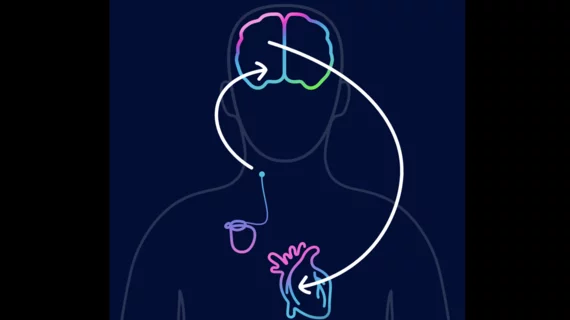CVRx, Abbott share long-term heart failure data at THT 2023
CVRx and Abbott both shared new data focused on treating heart failure patients at the second annual Technology and Heart Failure Therapeutics (THT) conference, THT 2023.
CVRx presents an update on the BeAT-HF study
CVRx, the Minneapolis-based medical device company, presented initial results from the BeAT-HF study, which examined the long-term impact of the company’s Barostim Baroreflex Activation Therapy among heart failure patients compared to medical management alone. Overall, the Barostim system—which targets heart failure symptoms by electrically stimulating baroreceptors in the carotid artery—was found to be safe and associated with significant improvements in quality of life and New York Heart Association Class after 24 months.
The treatment was also linked to improved survival without increasing the patient’s risk of a composite endpoint that included cardiovascular death, left ventricular assist device implantation, heart transplant, heart failure hospitalizations and emergency room visits.
“We are happy to see the significant long-term data that favored Barostim,” Nadim Yared, president and CEO of CVRx, said in a prepared statement. “Interest and adoption of the therapy continue to expand based on the previously approved claims, and now we look forward to submitting this new data to the FDA to pursue expanded labeling for Barostim. We are forever grateful to the patients, investigators, nurses, and research staff involved in the study.”
CVRx plans on sharing the full BeAT-HF results in a peer-reviewed journal in the near future.
Abbott presents new data from a meta-analysis focused on its CardioMEMS system
Abbott, meanwhile, shared a new meta-analysis of three different randomized controlled trials (CHAMPION, GUIDE-HF and LAPTOP-HF) related to the company’s CardioMEMS HF System. CardioMEMS is a remote heart failure monitoring device for patients presenting with heart failure with reduced ejection fraction (HFrEF) or heart failure with preserved ejection fraction (HFpEF). The device, roughly the size of a paperclip, then sends daily cardiac readings to the patient’s care team.
Overall, exploring data from more than 1,300 HFrEF patients, the team behind the meta-analysis found using the CardioMEMS system was associated with reducing the mortality risk by approximately 25% after two years.
“These new findings are encouraging news for physicians and the millions of people living with a progressive disease for which there is no cure,” Philip B. Adamson, MD, chief medical officer of Abbott's heart failure business, said in a prepared statement. “Heart Failure is a growing health crisis that demands innovative solutions and now we have a clinically proven life-extending option for this population.”
More information about THT 2023, which ran March 20 to March 22 in Boston, is available here.

